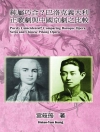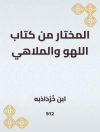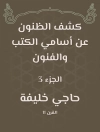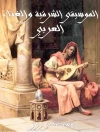Compelling inside views of what characterises opera and music theatre in African and African diasporic contexts.
Music is often cited as a central artistic mode in African theatre and performance practices. However, little attention has been paid to music theatre on the continent in general, and to opera in particular, with the exceptions ofa few noted genres, such as Concert Party or the Yorùbá ‘folk opera’ of the 1960s, and the emerging research on opera culture in South Africa.
This volume of
African Theatre highlights the diversity across the continent from a variety of perspectives – including those of genre, media, and historiography. Above all, it raises questions and encourages debate: What does ‘opera’ mean in African and African diasporic contexts? What are its practices and legacies – colonial, postcolonial and decolonial; what is its relation to the intersectionalities of race and class? How do opera and music theatre reflect, change or obscure social, political and economic realities? How are they connected to educational and cultural institutions, and non-profit organisations? And why is opera contradictorily, at various times, perceived as both ‘grand’ and ‘elitist, ‘folk’ and ‘quotidian’, ‘Eurocentric’ and ‘indigenous’?
Contributors also address aesthetic transformation processes, the porousness of genre boundaries and the role of space and place, with examples ranging from Egypt to South Africa, from Uganda to West Africa and the USA.
The playscript in this volume is
We Take Care of Our Own by Zainabu Jallo
GUEST EDITORS: Christine Matzke, Lena van der Hoven, Christopher Odhiambo & Hilde Roos
Series Editors: Yvette Hutchison, Reader, Department of Theatre & Performance Studies, University of Warwick; Chukwuma Okoye, Reader in African Theatre & Performance University of Ibadan; Jane Plastow, Professor of African Theatre, University of Leeds.
Daftar Isi
Introduction – Lena van der Hoven and Christine Matzke and Hilde Roos and Christopher Joseph Odhiambo
A Revolt in (more than just) Four Parts: Notes from a Composer in South Africa – Neo Muyanga
‘It was here, you must remember, our children played their games’: A Historiography of District Six Musical Theatre – Paula Fourie
‘Opera is an art form for everyone’: Black Empowerment in the South African Opera Adaptations
Unogumbe (2013) and
Breathe – Umphefumlo (2015) – Lena van der Hoven
‘Opera is an art form for everyone’: Black Empowerment in the South African Opera Adaptations
Unogumbe (2013) and
Breathe – Umphefumlo (2015) – Liani Maasdorp
‘We can’t let politics define the arts’: Interviews with South African Opera Singers – Lena van der Hoven
Aida’s Legacy or De-/Colonising Music Theatre in Egypt: The Example of the Cairo Opera House – Nora Amin
Toward an African Operatic Voice: Composition, Dramaturgy and Identity Strategies in New Yorùbá Opera – Bode Omojola
The Phantom of the West African Opera: A
tour d’ horizon – Tobias Robert Klein
The ‘African Opera Village’ Turns 10: A Retrospective Look at a Controversial Project in Burkina Faso – Fabian Lehmann
The ‘African Opera Village’ Turns 10: A Retrospective Look at a Controversial Project in Burkina Faso – Wilfried Zoungrana
The ‘African Opera Village’ Turns 10: A Retrospective Look at a Controversial Project in Burkina Faso – Andrea Reikat
”I smoked them out’: Perspectives on the Emergence of Folk Opera or ‘Musical Plays’ in Uganda – Sam Kasule
‘Home is where the memory persists most’: Introducing Zainabu Jallo’s
We Take Care of Our Own – Christine Matzke
Playscript:
We Take Care of Our Own – Zainabu Jallo
Book Reviews edited by Sola Adeyemi
Tentang Penulis
Hilde Roos is the General Manager of Africa Open Institute for Music, Rese In 2013 she co-edited the oral history book Eoan – Our Story and published her monograph The La Traviata Affair: Opera in the Age of Apartheid with University of California Press in 2018.












